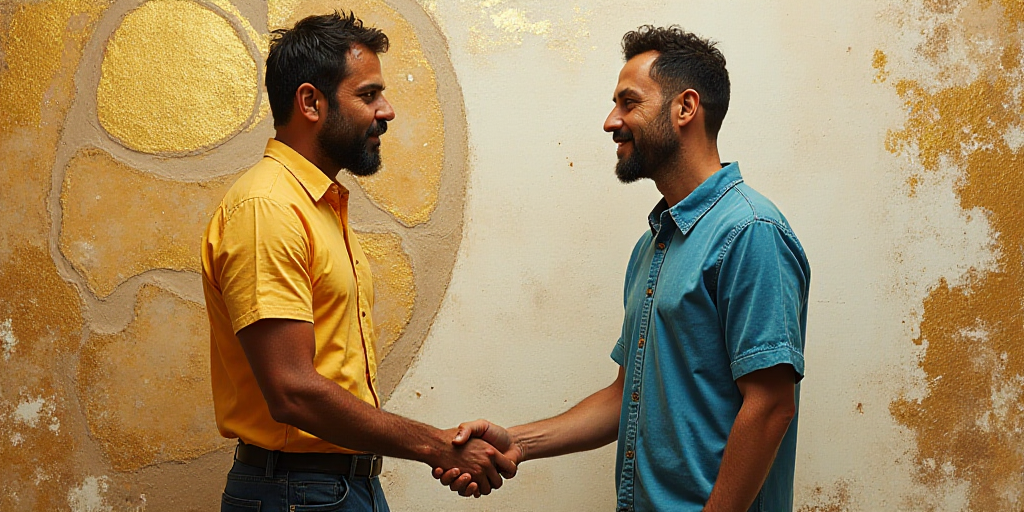Background on Key Figures and Groups
Brasilia. Brazil and India recently reiterated their desire to secure permanent seats on the United Nations Security Council during a visit by Indian Prime Minister Narendra Modi to Brazilian President Luiz Inácio Lula da Silva in Brasilia.
Lula and Modi, two influential leaders from the “Global South,” met following their participation in a BRICS summit in Rio de Janeiro over the weekend. The BRICS group, comprising Brazil, Russia, India, China, and South Africa, represents nearly half of the world’s population.
Joint Declaration and Support for Reform
In a joint statement after the state visit, both leaders expressed their commitment to “extensive reform” of the UN Security Council and reiterated mutual support for their countries’ candidacies for permanent seats in an expanded council.
“Brazil and India possess extraordinary potential, which is why we insist on our right to participate in the UN Security Council,” Lula stated at a press conference alongside Modi, according to the official translation.
Lula emphasized that it is “unacceptable” for countries as large as India and Brazil not to hold permanent seats in the council. He also highlighted the importance of strengthening Brazil’s relationship with India, a diverse nation with 1.4 billion inhabitants that is democratic and works towards peace.
Modi, in turn, emphasized the significance of the India-Brazil partnership as “a crucial pillar of stability and balance” amid global conflicts and uncertainties.
Support from China and Russia
China and Russia back Brazil and India’s aspirations
“We believe all these disputes should be resolved through dialogue and diplomacy,” Modi added, according to the official translation.
In May, India and Pakistan, two nuclear-armed neighbors, exchanged attacks over four days, marking one of the worst clashes in decades between the two countries.
During the BRICS summit, the 11 full members of the group—including Brazil, Russia, India, China, and South Africa—advocated for Security Council reform “to amplify the voice of the Global South,” as stated in the summit’s final declaration.
The document notes that China and Russia, two of the five permanent members in the council, expressed their support for Brazil and India’s aspirations to play a more significant role in the UN, including within the Security Council.
Alongside China and Russia, the exclusive membership with veto power over any UN decisions consists of the United States, France, and the United Kingdom. Ten other countries participate on a rotating basis without veto power.
Recently, the Security Council has faced criticism for its inaction during conflicts in Ukraine and Gaza, due to Russia’s and the United States’ vetoes.
Strengthening Relations and Bilateral Agreements
Lula received Modi at the presidential residence, Alvorada, where they signed bilateral agreements on counterterrorism, renewable energy, and digital solutions.
Brazil and India have deepened their relationship since forming a strategic partnership in 2006. With a bilateral trade of $12 billion projected for 2024, India is Brazil’s tenth-largest trading partner.
Mexico and Brazil compete for regional leadership. If Lula’s aspirations come to fruition, it would be a significant achievement.
Key Questions and Answers
- Who are Brazil and India? Brazil and India are two large, influential countries in the Global South with significant populations and growing economies.
- What is the BRICS group? The BRICS group comprises Brazil, Russia, India, China, and South Africa—five major emerging economies representing nearly half of the world’s population.
- What is their goal regarding the UN Security Council? Brazil and India aim to secure permanent seats on the UN Security Council, supported by the BRICS group advocating for comprehensive reform of the council.
- Why is this significant? A permanent seat on the UN Security Council grants a country veto power over any decisions made by the forum, enhancing global influence and decision-making capabilities.
- Who else supports their aspirations? China and Russia, two of the five permanent members with veto power, have expressed support for Brazil and India’s aspirations to play a more significant role in the UN, including within the Security Council.






